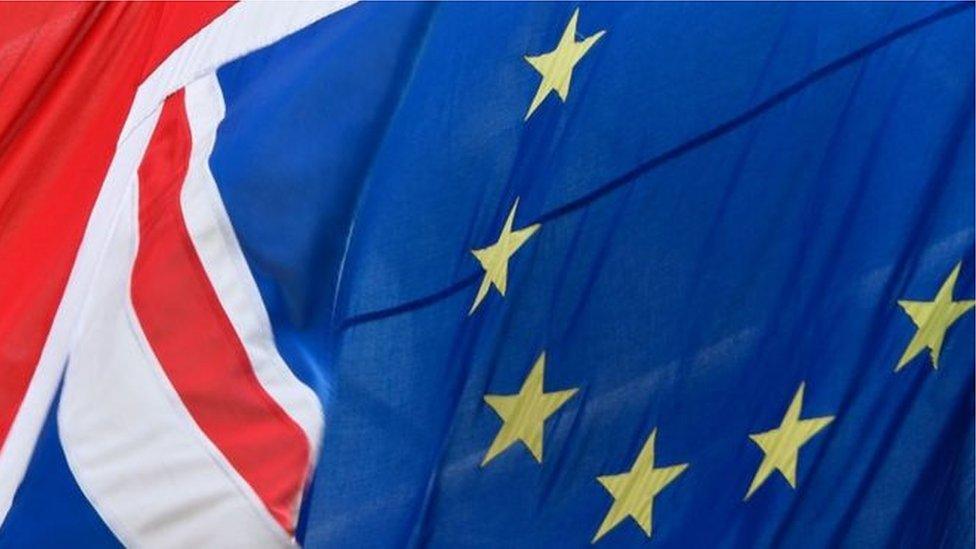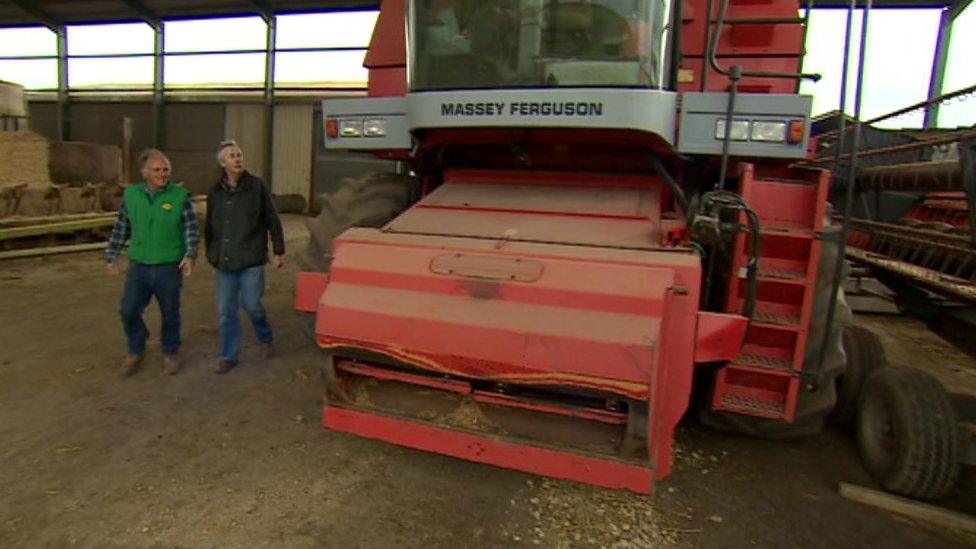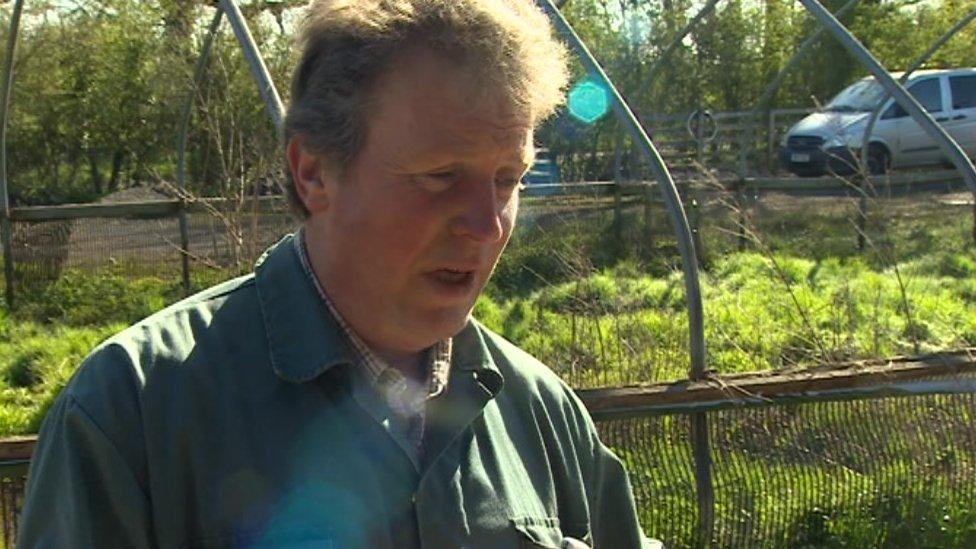Why Midlanders are narrowing their referendum options
- Published

"Can you give us the facts?"
Wherever I go and whoever I bump into these days, that's what people are asking me during the countdown to the referendum on Thursday 23 June 2016.
The decision itself may be a binary one: To Remain in or to Leave the EU. But the answer to that question on the streets is anything but. I always reply that it's all about opinions, judgement calls and, yes, gut feelings play their part as well.
So how are we to weigh the diverse assortment of issues this entails? Access to the European single market, parliamentary sovereignty, border control, workers' rights. The list goes on and on.
It's all nuanced, pastille shades. There's nothing simple or black and white about this.
No wonder this has the makings of such a spectacularly close contest.
This week's ICM poll gives Brexit a narrow lead with 46% of respondents favouring a Leave vote and 44% wanting to Remain.
But after last year's shock general election result it has never been more important to issue our customary health warnings about opinion polls: They never show anything, they merely indicate or suggest.
Nevertheless, corroboration of ICM's findings comes from another and perhaps unexpected quarter.

Both sides in June's EU referendum have been keen to roll out business leaders to support their cause
Businesses divided
Business opinion, so long generally assumed to be staunchly supportive of EU membership, is also reported to be showing signs that the Brexit tendency is strengthening.
According to the British Chambers of Commerce's final online survey before the referendum, the proportion of their members who wish to Remain has fallen since February from 60% to 54%, while those favouring a Leave vote has risen from 30% to 37%.
The Chambers also indicate that it is among smaller firms that support for Brexit is strongest, while larger businesses are still more likely to favour Britain remaining in the EU.
Drill more deeply into the BCC's figures and they suggest the West Midlands is the most Euro-sceptic region of all.
According to their survey, 45.2% of West Midlands businesses would vote to Remain in the EU, closely followed by 44.8% who would vote to Leave if the referendum were to be held tomorrow. As many as 9.7% are still undecided.
Few industries have more at stake than farming.
It is a £1bn a year business in our part of the country alone. But an estimated 40% of British farms would become unsustainable without EU farm subsidies, worth up to three billion euros per year to British agriculture.

Farmer Ray Bower, who farms near Penkridge in Staffordshire, says leaving the EU would give the British government more control over all areas of spending, including agriculture
The subsidies amount to up to 60% of some farmers' incomes.
So it did not exactly come as a surprise when the National Farmers' Union, meeting at Stoneleigh in Warwickshire, decided recently to support Britain remaining in the EU.
But there is still a vocal contingent of Midlands farmers who believe that they, like the rest of us, would be better off out.
Spending decisions
For the latest of my special Midlands Today reports I've been talking to farmers on both sides of the argument.
Adam Quinney has a 350-acre farm at Sambourne in Warwickshire comprising a mixture of arable crops, along with beef cattle and also sheep for the French lamb market.
He tells me he trusts the EU more than future British governments to be custodians of farm subsidies. If they are reduced he says the price of food would inevitably rise.
But Ray Bower, who farms 500 acres near Penkridge in Staffordshire, says EU subsidies go down as well as up.
So, he says, why not enable a post-Brexit British government to make the spending decisions about agriculture alongside education and health services, rather than using the money "to prop up Europe".

Farmer Adam Quinney in Warwickshire is backing the NFU's official position to remain in the EU
With their words still ringing in my ears, I'll be taking up the debate with our guests in this weekend's Sunday Politics Midlands.
Two of them are MPs who support the campaign to Remain in the EU - Caroline Spelman, the Conservative MP for Meriden, and Jess Philips the Labour MP for Birmingham Yardley.
Joining battle on behalf of the Leave campaign will be Peter Shirley, the outspoken boss of Midlands Chilled Food, based at Willenhall in the Black Country.
Yes, I know it's two-to-one but as chairman I'll be doing my utmost to ensure that fabled "level playing field".
I hope you will be able to join us too, in our usual slot: 11:00 on BBC One this Sunday 15 May 2016.